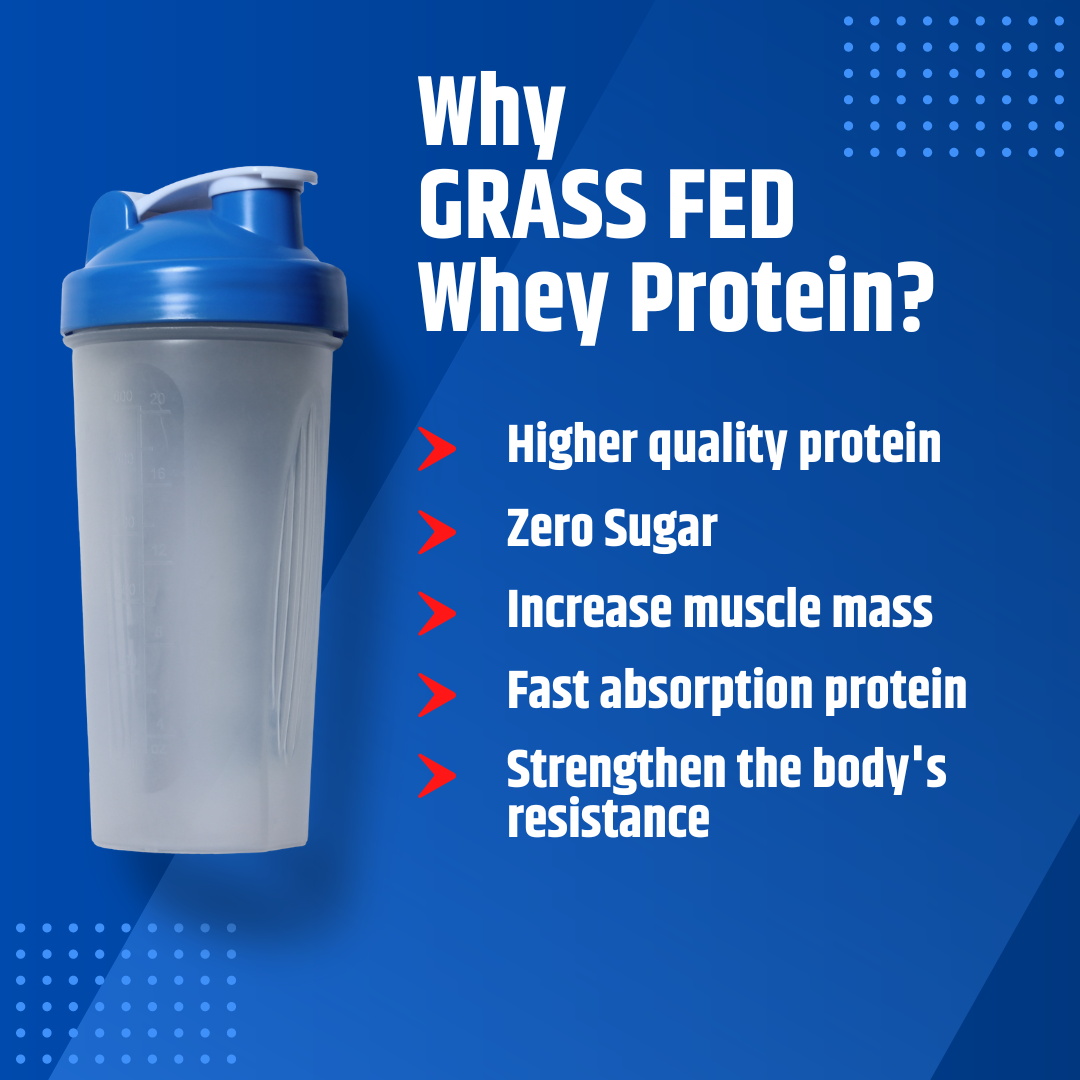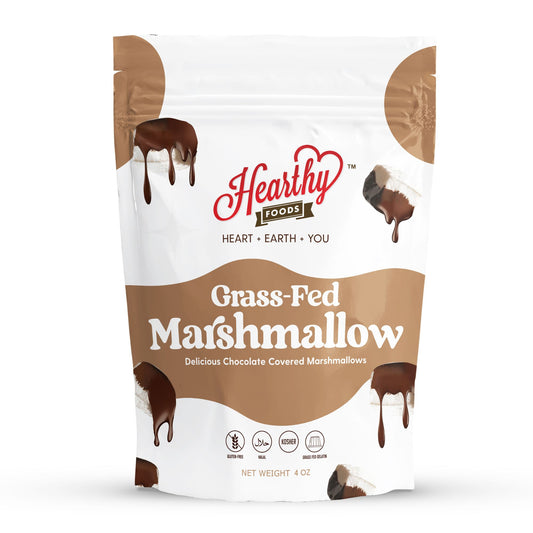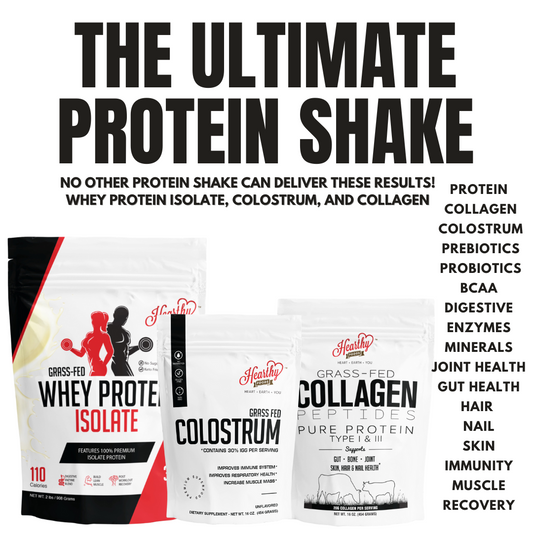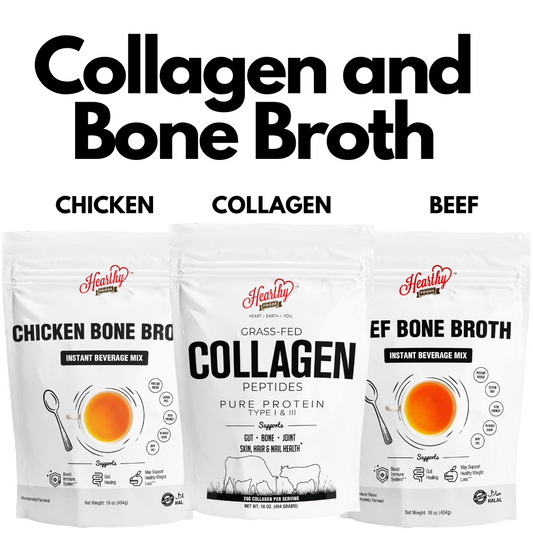
Grass-Fed Whey Protein With No Sugar: Benefits and Considerations
While it's been said that the role that protein plays in overall health has become somewhat overstated in recent years, it's unarguably still a vital component of a healthy, well-balanced diet.
Protein is a nutrient that is vital to our optimal health and can be found in virtually every part of the body, including our bones, muscle, skin, and hair. Protein supports our body's production of enzymes and hormones, and is also essential for building and repairing healthy muscle tissue.
According to research published by the National Library of Medicine, the Recommended Dietary Allowance (RDA) for a healthy adult with minimal physical activity is approximately 0.8 grams of protein per kg of body weight daily.
Grass-fed whey is an excellent source of high-quality protein that offers many health benefits. Many whey protein products on the market do contain added sugar, but there are also plenty of unsweetened grass-fed whey protein options to choose from; it might just be a matter of carefully reading the labels before making your purchase.
For those who prefer a little sweetener, there are also a range of options that contain only a pinch of organic sugar and/or stevia leaf extract, and these can be great choices for kids who need a little extra protein in their diet. Enticing flavors, such as vanilla ice cream protein powder, can be helpful for parents with fussy eaters, too.
Why grass-fed?
The difference between grass-fed and non-grass-fed whey protein lies in the milk source it's derived from. Grass-fed whey protein comes from cows that have been fed a diet consisting primarily of grass (and other forage), while non-grass-fed whey protein comes from the milk of cows that have been fed a diet high in grains and other supplementary foods.
This difference can affect the protein's nutritional content, with grass-fed whey typically containing more omega-3 fatty acids than non-grass-fed alternatives Omega-3 fatty acids are essential nutrients that boast significant anti-inflammatory properties.
Grass-fed whey protein also tends to contain higher levels of other key vitamins and minerals, such as vitamin E and beta-carotene. The downside is that grass-fed products are typically more expensive, but as with most things, you get what you pay for in terms of quality.
Benefits of zero-sugar, grass-fed whey protein
Grass-fed whey protein with no added sugar provides a range of considerable health benefits, including:
High-quality source of protein
Grass-fed whey protein is a fantastic source of high-quality protein, which is essential in assisting the body to build and maintain muscle mass, as well as supporting overall health and well-being.
Whey protein is one of the most bioavailable forms of protein, meaning that it is easy for our bodies to absorb and utilize it. Grass-fed whey protein is also rich in branched-chain amino acids (BCAAs), which are essential for the growth and repair of our muscles.
Promotes healthy weight loss
So long as they contain no added sugar, grass-fed whey protein products can significantly help to promote healthy weight loss.
Protein is an excellent food source for helping us to feel satiated, thus reducing our appetite and food cravings, and preventing over (or unnecessary) eating. Additionally, grass-fed whey protein can help to boost metabolism, as well as increase the amount of calories burned during exercise. Research has shown that consuming whey protein regularly can result in weight loss and a reduction in overall body fat.
Supports cardiovascular health
Studies show that whey protein can help to lower blood pressure and cholesterol levels, both of which are significant risk factors for heart disease. In addition, whey protein has been shown to have anti-inflammatory effects, helping to further reduce the risk of developing heart disease and a range of other chronic conditions.
Enhances immune system function
Whey protein is rich in immunoglobulins and lactoferrin, both of which are known to support the healthy function of our immune system, and assist in fighting off infections and disease. Furthermore, whey protein helps to stimulate the production of glutathione, an antioxidant that plays a key role in healthy immune function.
Packed with essential nutrients
Grass-fed whey protein can provide many essential nutrients that our bodies need for optimal health. Whey protein is high in many vitamins and minerals, such as calcium, magnesium, and phosphorus. These nutrients play a vital role in maintaining strong teeth and bones, as well as supporting a range of other bodily functions.
Considerations when buying grass-fed whey protein
While there are many benefits to sugar-free grass-fed whey protein, there are some considerations to bear in mind when selecting which product is best for you.
Quality
When selecting a grass-fed whey protein product, look for high-quality ingredients. While it's great that the whey has been sourced from grass-fed cows, products with no other added artificial ingredients will be a far healthier option. Higher-quality protein products will likely be a little more expensive, but it will be worth the investment for optimal health.
Consider the Source
For peace of mind all round, go for products that are made from milk that has been sourced from reputable places, such as local, small family farms, as they are more likely to prioritize the well-being of their animals. This will help to ensure that the cows have been treated humanely and that the milk itself is free from harmful chemicals and other contaminants.
Protein content
When selecting any protein supplement, it's important to check the protein content to ensure that it will provide you with enough protein to gain the health benefits you're after. Products with at least 20 grams of protein per serving are best.
Allergies and Sensitivities
Anyone with an allergy or intolerance to lactose (or dairy in general) should be cautious when it comes to consuming grass-fed whey protein products. Some products have been treated to remove the lactose, and this will typically be clearly advertised so look out for those options.
Some individuals may be allergic to whey protein itself, so it might be best to consult with a healthcare provider before starting on any new supplements.
Final Thoughts
Zero-sugar, grass-fed whey protein is a great option for those looking to supplement their diet with high-quality protein without the added sugars or other nasties that are commonly found in protein supplements. It's also an excellent addition to any diet with weight loss as a primary goal.







